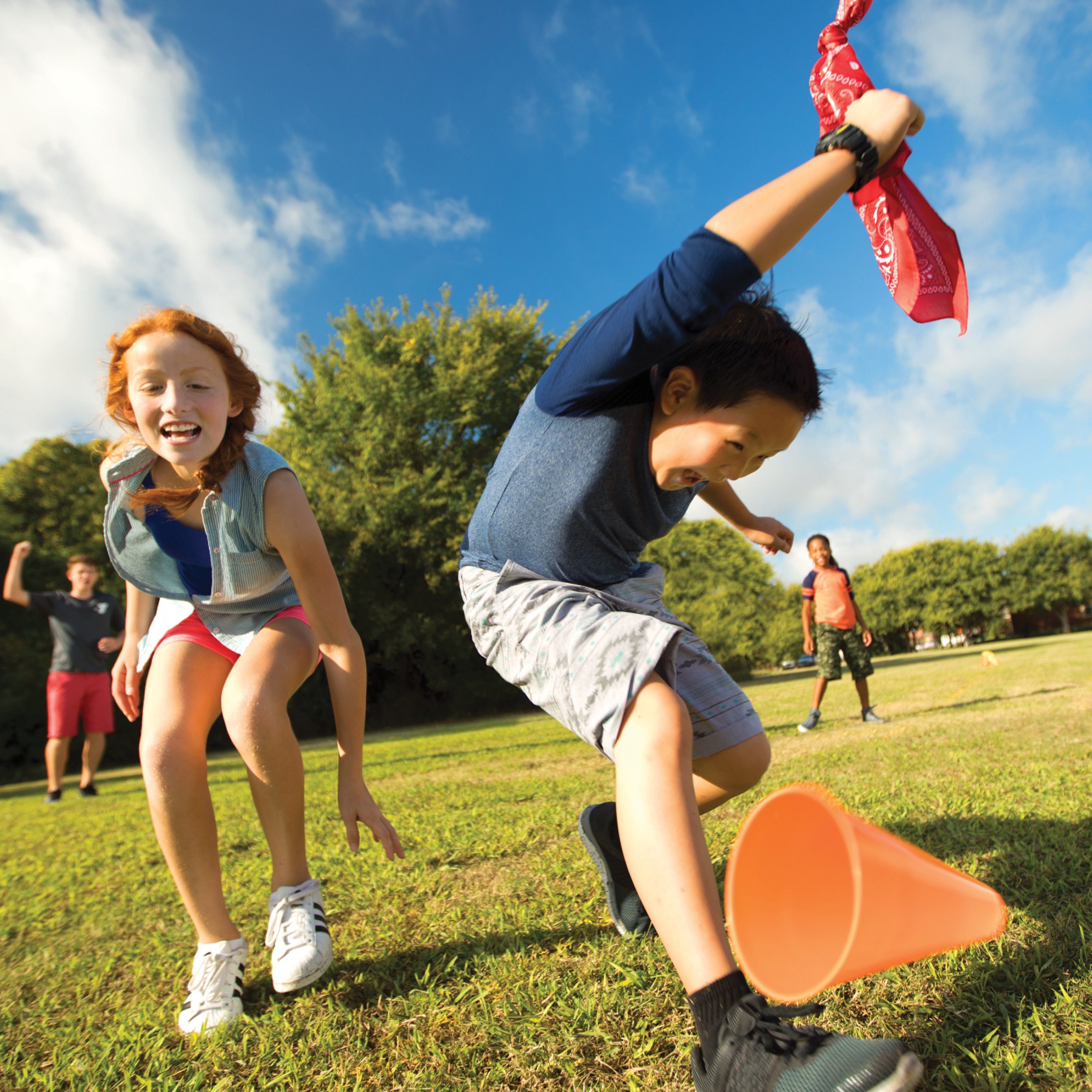**Thought of the Day for Kids:** Practicing gratitude daily brings happiness and positivity. Teaching kids the value of gratitude can have lifelong benefits.
A simple practice, like sharing what they’re thankful for, helps children focus on the positive. This habit builds resilience and improves their overall mood. Regularly expressing gratitude fosters connections with others and encourages kindness. Kids learn to appreciate small joys, which boosts their mental health.
As they grow, this practice can shape their outlook on life. Gratitude helps them handle challenges better and promotes a sense of belonging. Encouraging this daily can set them on a path to a happier future. Simple words can make a big difference in their lives. Let’s inspire our children to be thankful every day!
Table of Contents
Introduction To Daily Thoughts
Daily thoughts can inspire kids. They help shape young minds. A simple thought of the day can create a positive impact. This practice nurtures creativity and encourages reflection.
Importance For Young Minds
Daily thoughts are vital for children’s growth. Here are some key benefits:
- Boosts Confidence: Positive thoughts build self-esteem.
- Encourages Positivity: Focus on good things in life.
- Enhances Focus: Helps kids concentrate better.
- Promotes Emotional Health: Supports mental well-being.
Sharing daily thoughts fosters communication. Kids learn to express feelings. This practice encourages them to listen and understand others.
Building A Positive Routine
Creating a daily thought routine is easy. Here’s how to start:
- Choose a specific time each day.
- Use a journal or a chalkboard.
- Encourage kids to share their thoughts.
- Discuss the meaning behind each thought.
Make it fun! Use colorful markers or stickers. This keeps kids engaged and excited.
Daily thoughts can be shared at family meals. This creates a supportive environment. Kids will look forward to these moments.

Credit: gwrymca.org
Choosing The Right Thought
Choosing the right thought for kids is crucial. It sets the tone for their day. A good thought encourages positivity and growth. Kids learn valuable lessons from these thoughts. Simple yet meaningful themes work best.
Age-appropriate Themes
Select thoughts that match your child’s age. Younger kids need simple ideas. Older kids can handle more complex concepts.
- Preschool (Ages 3-5): Focus on fun and simple ideas.
- Early Elementary (Ages 6-8): Introduce themes of friendship and kindness.
- Late Elementary (Ages 9-12): Explore themes of responsibility and self-improvement.
Use relatable examples. This helps kids understand better. Choose thoughts that inspire curiosity and creativity. For instance, “Today, I will share my toys.” Works great for younger kids.
Diversity In Thoughts
Diversity in thoughts enriches kids’ experiences. Include a variety of themes. This helps children understand different perspectives.
| Theme | Description |
|---|---|
| Empathy | Understanding and sharing feelings with others. |
| Gratitude | Appreciating what they have. |
| Courage | Facing fears and challenges bravely. |
| Respect | Honoring differences among people. |
Rotate thoughts regularly. This keeps children engaged. Encourage discussions about these themes. Ask kids how they relate to their lives. Diverse thoughts promote emotional intelligence.
Inspiration Sources
Finding the right inspiration can boost a child’s creativity and imagination. Two excellent sources are books and cultural proverbs. They provide valuable lessons and exciting ideas. Let’s explore these sources!
Books And Literature
Books are treasure troves of inspiration. They can spark imagination and teach important values. Here are some great examples:
- The Little Engine That Could – Teaches perseverance.
- Oh, The Places You’ll Go! – Encourages dreaming big.
- Charlotte’s Web – Highlights friendship and kindness.
- Wonder – Promotes empathy and acceptance.
Reading these books can open new worlds. They help kids think differently and understand various perspectives. Encourage daily reading. It builds a love for literature and sparks creativity.
Cultural Proverbs
Cultural proverbs offer wisdom from around the world. They are short, memorable phrases filled with meaning. Here are a few examples:
| Proverb | Meaning |
|---|---|
| “A stitch in time saves nine.” | Fixing problems early prevents bigger issues later. |
| “Actions speak louder than words.” | What you do matters more than what you say. |
| “Where there’s a will, there’s a way.” | Determination can help overcome obstacles. |
Using these proverbs encourages kids to think critically. They can learn important life lessons quickly. Share a new proverb each day. Discuss its meaning and how it applies to life.
Incorporating Into Daily Life
Incorporating a ‘Thought of the Day’ practice helps kids grow. It teaches them to reflect and learn daily. Simple routines can make this habit easy and fun.
Morning Rituals
Start the day with a positive thought. Morning rituals set a bright tone. Here are some simple steps:
- Choose a quiet spot.
- Read or share a thought.
- Discuss its meaning.
- Encourage kids to think about it.
Use colorful sticky notes. Place them on mirrors or breakfast tables. Kids will see them every morning.
Bedtime Reflections
End the day with a moment of reflection. Bedtime is perfect for winding down. Follow these steps:
- Ask kids about their favorite thought of the day.
- Discuss how it made them feel.
- Encourage them to share a new thought.
This routine helps kids process their day. It promotes gratitude and understanding. Create a cozy atmosphere with dim lights and calming music.
Tools For Thought Sharing
Sharing thoughts helps kids understand their feelings. It builds confidence and creativity. Here are two great tools for kids to share their thoughts: Thought Journals and Digital Apps.
Thought Journals
A thought journal is a simple notebook. Kids can write or draw their thoughts. This practice helps them express emotions. It can also improve writing skills.
- Choose a fun notebook.
- Use colorful pens or pencils.
- Encourage daily entries.
- Include prompts for inspiration.
Some prompts can be:
- What made you smile today?
- What was the best part of your day?
- What are you grateful for?
Reading past entries helps kids see growth. It shows how their thoughts change over time. This practice can be calming and fun.
Digital Apps For Kids
Digital apps make thought sharing interactive. Many apps are designed for kids. They offer fun ways to record thoughts.
| App Name | Features |
|---|---|
| Day One | Text, photo, and audio entries. |
| Journey | Daily prompts and mood tracking. |
| Penzu | Private journal with customizable themes. |
These apps often include:
- Daily reminders to write.
- Fun stickers and emojis.
- Safe spaces for sharing.
Kids enjoy using technology. Digital tools can motivate them to share thoughts. They can connect with friends and family through shared entries.

Credit: gozi.in
Engaging Kids With Questions
Asking questions sparks kids’ imaginations. It helps them think deeply. Questions make learning fun and exciting. They also encourage kids to express their thoughts. This practice can lead to lifelong benefits.
Stimulating Curiosity
Curiosity drives kids to explore the world. It helps them discover new ideas. Here are ways to stimulate their curiosity:
- Ask open-ended questions: “What do you think will happen next?”
- Encourage storytelling: “Can you tell me a story about your day?”
- Explore new topics: “What interests you about space?”
- Use visuals: “What do you see in this picture?”
These questions encourage kids to think and wonder. They learn to ask their own questions too. Curiosity leads to exploration and discovery.
Encouraging Critical Thinking
Critical thinking helps kids solve problems. It teaches them to analyze information. Here are tips to encourage critical thinking:
- Challenge assumptions: “Why do you think that is true?”
- Discuss outcomes: “What might happen if we try this?”
- Compare and contrast: “How are these two things different?”
- Encourage reasoning: “What is your proof for that idea?”
These questions promote deeper understanding. Kids learn to think independently. They become confident in their abilities.
Family Involvement
Involving the whole family in the “Thought of the Day” practice can create strong bonds. It makes the experience fun and meaningful for everyone. Kids learn best in a supportive environment. Family participation enhances the benefits of this simple exercise.
Parental Guidance
Parents play a key role in this practice. Here are some tips for effective parental guidance:
- Model Enthusiasm: Show excitement about sharing thoughts.
- Set a Routine: Choose a specific time each day for this activity.
- Encourage Open Expression: Allow kids to share their feelings and thoughts freely.
- Be Patient: Give your child time to think and respond.
Consistent involvement helps kids understand the value of these thoughts. It fosters a safe space for sharing ideas and emotions.
Group Discussions
Group discussions make the “Thought of the Day” more engaging. Here’s how to facilitate effective discussions:
- Choose a Theme: Select a theme for the week, like kindness or courage.
- Share Thoughts: Each family member shares their thought for the day.
- Ask Questions: Encourage questions to deepen understanding.
- Reflect Together: Discuss how these thoughts can apply to daily life.
Group discussions help children learn from each other. They build critical thinking skills and empathy.
Incorporating family involvement strengthens relationships. It helps kids value their thoughts and feelings.
Educational Benefits
Practicing a “Thought of the Day” can boost children’s learning. It enhances language skills and cognitive abilities. Here are two significant educational benefits of this practice.
Language Development
Engaging with daily thoughts helps kids expand their vocabulary. They learn new words and phrases through discussions. Here are some key points about language development:
- Improved Vocabulary: Kids encounter unique words daily.
- Enhanced Communication: They express ideas clearly and confidently.
- Creative Thinking: Children use language to describe their thoughts.
This practice encourages reading and listening skills. Children become more curious about language. They may ask questions, making learning fun.
Cognitive Growth
Daily thoughts stimulate critical thinking. Kids learn to analyze and reflect on their ideas. Here’s how cognitive growth happens:
- Problem Solving: Children learn to approach challenges creatively.
- Decision Making: They practice making choices based on their thoughts.
- Memory Enhancement: Regular practice improves retention of concepts.
This activity encourages kids to think independently. They develop a stronger sense of self and understanding of the world. With consistent practice, children build skills that last a lifetime.
Emotional Intelligence
Emotional intelligence is the ability to understand and manage emotions. It helps kids build strong relationships and handle challenges. Teaching emotional intelligence early can lead to lifelong benefits. One fun way to develop this skill is through the “Thought of the Day” practice.
Empathy Through Reflection
Empathy is about understanding how others feel. It helps kids connect with friends and family. Here are some ways to boost empathy:
- Ask kids to share their feelings.
- Encourage them to think about others’ emotions.
- Discuss stories with strong characters.
Reflection helps kids learn from their experiences. Use the “Thought of the Day” to guide these conversations. Kids can think about:
- How did my actions affect others?
- What can I do to help someone today?
This practice helps kids develop empathy by thinking deeply about emotions.
Understanding Emotions
Understanding emotions is key to emotional intelligence. Kids should learn to identify their feelings. Here are some common emotions:
| Emotion | Description |
|---|---|
| Happy | Feeling joy or pleasure. |
| Sad | Feeling down or unhappy. |
| Angry | Feeling strong displeasure. |
| Fearful | Feeling scared or worried. |
Encourage kids to express their feelings daily. Ask them about their emotions during the “Thought of the Day.” This practice helps kids recognize and name their feelings. Understanding emotions leads to better self-control and communication.

Credit: www.amazon.com
Social Skills And Relationships
Teaching kids the value of social skills helps them build strong relationships. Good social skills boost confidence. They also improve communication with others. A daily thought can reinforce these skills and make friendships blossom.
Building Friendships
Friendships are essential for children’s emotional health. Here are some tips to help kids make friends:
- Be friendly: Smile and say hello first.
- Share interests: Talk about hobbies and favorite games.
- Be a good listener: Pay attention when friends speak.
- Offer help: Help a friend with a tough task.
Encouraging kids to express daily thoughts can enhance their friendship skills. Using positive affirmations helps them feel valued. This practice can lead to deeper connections.
Navigating Social Dynamics
Understanding social dynamics is key for kids. Here are some important aspects:
| Social Skill | Why It Matters |
|---|---|
| Empathy | Helps kids understand others’ feelings. |
| Communication | Encourages clear expression of thoughts. |
| Conflict Resolution | Teaches kids how to solve disagreements. |
Kids learn to adapt to different situations. They gain confidence in group settings. Daily reflections can help them process these social experiences.
Challenges And Solutions
Introducing the “Thought of the Day” practice can bring challenges. Understanding these hurdles helps create effective solutions. Kids may resist this new habit at first. They might find it boring or difficult. Addressing these challenges leads to a more enjoyable experience.
Overcoming Reluctance
Many kids may feel hesitant about sharing their thoughts. Here are some strategies to encourage participation:
- Make it Fun: Use games or creative prompts.
- Lead by Example: Share your own thoughts daily.
- Offer Rewards: Small incentives can motivate kids.
Try these tips:
- Start with simple questions.
- Use colorful journals or art supplies.
- Encourage group discussions to build confidence.
Maintaining Consistency
Keeping a daily routine can be tough. Kids may forget or lose interest. Here are some helpful solutions:
| Strategy | Description |
|---|---|
| Set a Time | Choose a specific time each day for thoughts. |
| Create Reminders | Use alarms or calendar alerts to prompt them. |
| Make it Visual | Use charts to track daily thoughts. |
Build excitement by celebrating milestones. Recognize their efforts with praise. This keeps kids engaged in the practice.
Success Stories
Success stories highlight how the “Thought of the Day” practice changes lives. Kids learn valuable lessons daily. This simple habit shapes their character, boosts confidence, and improves focus. Let’s explore real-life examples and testimonials from parents.
Real-life Examples
Many families have shared their experiences with the “Thought of the Day.” Here are a few inspiring stories:
- Emma, age 8: Emma started sharing her thoughts at breakfast. She learned to express her feelings. This helped her make new friends at school.
- Lucas, age 10: Lucas struggled with math. He started focusing on positive thoughts. Now, he enjoys math and even helps classmates!
- Sophia, age 7: Sophia faced challenges in sharing toys. After daily thoughts, she became more generous. Now, she happily shares with her friends.
Testimonials From Parents
Parents notice positive changes in their kids. Here are some glowing testimonials:
| Parent Name | Child’s Age | Feedback |
|---|---|---|
| Mrs. Johnson | 9 | “My son is more confident and outgoing now!” |
| Mr. Smith | 6 | “My daughter shares more and is happier at school!” |
| Ms. Lee | 8 | “We see a big change in our child’s attitude!” |
These success stories show the power of a simple daily practice. Kids learn to think positively and grow into responsible individuals.
Moving Forward
Every child deserves a bright future. Teaching them to think positively shapes their outlook. The practice of a daily thought can create lasting changes. Simple habits lead to great results over time. Encouraging children to reflect helps them grow into thoughtful adults.
Creating A Thoughtful Generation
To nurture a thoughtful generation, we can implement simple methods. Here are some effective strategies:
- Start each day with a positive thought.
- Encourage kids to share their thoughts with family.
- Use journals for daily reflections.
- Practice gratitude to shift focus to the positive.
These practices can lead to:
- Improved emotional intelligence.
- Better problem-solving skills.
- Increased empathy towards others.
- A stronger sense of self-worth.
Resources For Continued Practice
To support this journey, various resources can help. Consider these options:
| Resource Type | Description |
|---|---|
| Books | Engaging stories that promote positive thinking. |
| Apps | Interactive tools for daily thoughts and gratitude. |
| Workshops | Group activities to foster positive mindset. |
These resources keep the practice alive. They make learning fun and engaging. Children can explore different ways to reflect and grow.
Frequently Asked Questions
What Is The Thought Of The Day For Kids?
The thought of the day is a daily motivational quote or idea that inspires positive thinking in children.
How Can Daily Thoughts Benefit Children?
Daily thoughts encourage mindfulness, boost confidence, and foster a growth mindset, promoting lifelong learning and resilience.
How To Implement This Practice At Home?
Start each day by sharing a simple, uplifting thought. Discuss its meaning and encourage kids to reflect on it.
Can This Practice Improve Children’s Behavior?
Yes, positive daily thoughts can enhance emotional regulation, leading to better behavior and improved interactions with others.
Conclusion
Teaching kids to reflect on their thoughts each day can lead to amazing benefits. **It’s simple**—just a few minutes of quiet time can make a big difference. Think about it. When kids pause and reflect, they learn to: * Understand their feelings better * Make smarter choices * Build confidence in themselves These skills will help them now and in the future.
So, why not give it a try? You might be surprised at how much they enjoy it. **And remember**—it’s not just about today; it’s a practice that can last a lifetime. Start this journey with your kids, and watch them grow into thoughtful individuals.







